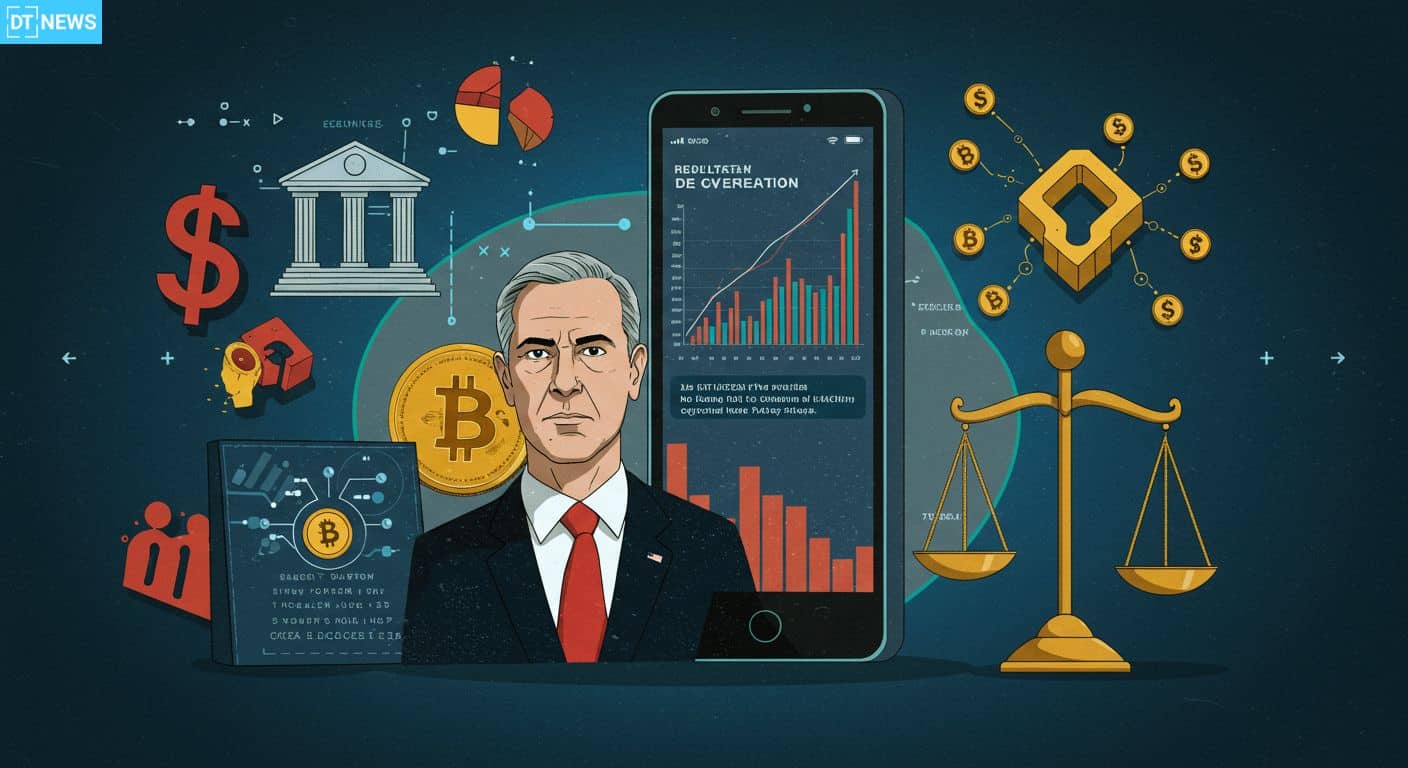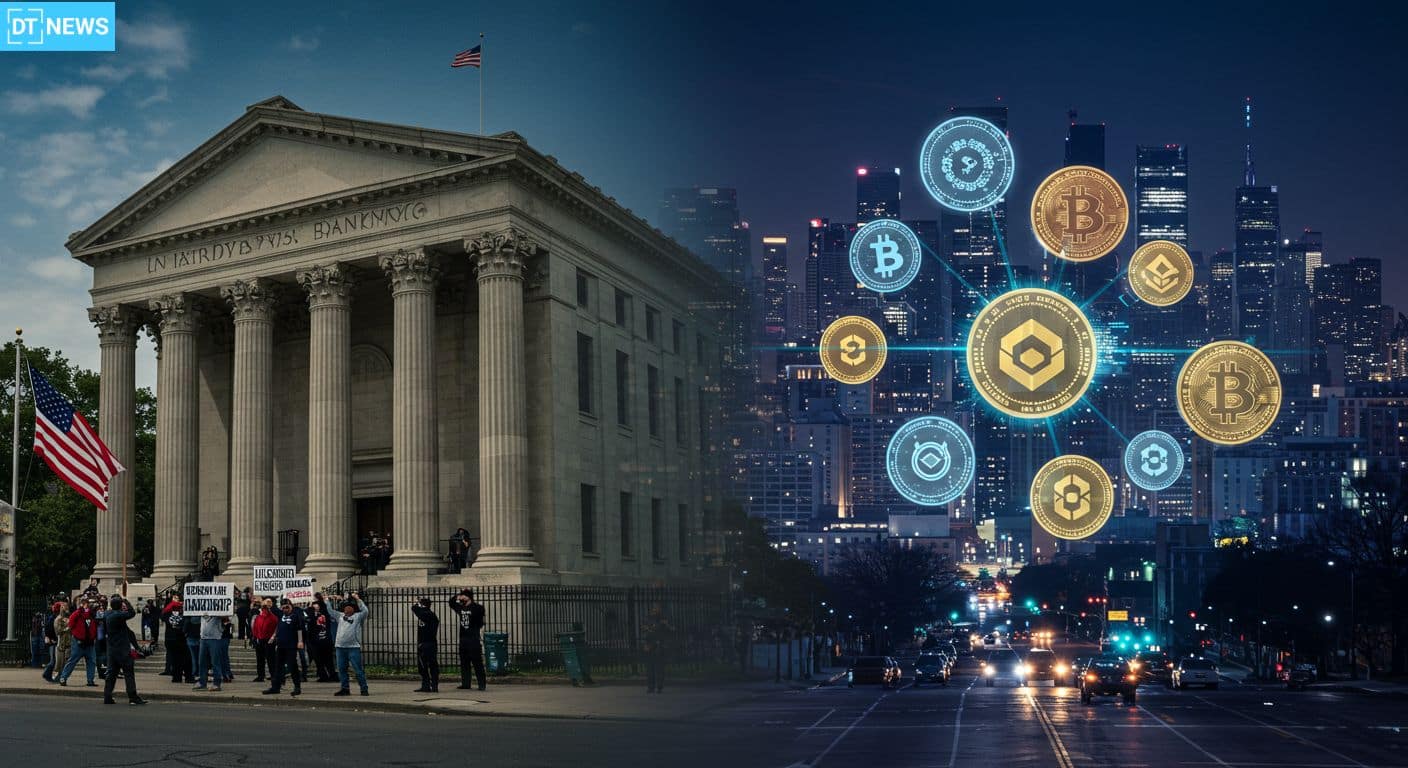According to latest reports, the White House is preparing to issue a crypto debanking executive order as part of a new “Digital Fairness Drive”. The order is set to penalize banks for denying services to conservatives or cryptocurrency clients based on ideology not risk.
- What the Digital Fairness Drive Means for Banking
- Why Now? Operation Chokepoint 2.0 and Industry Pressure
- Provisions Under Debate
- Industry and Policy Implications
- Conclusion
- FAQ
- What is the crypto debanking executive order?
- What’s Digital Fairness Drive?
- Which laws will be implicated?
- Which agencies will enforce it?
- Will banks be penalized?
- Glossary
The proposal will have federal regulators investigate potential violations of the Equal Credit Opportunity Act, antitrust laws or consumer financial protection laws. Fines, consent decrees or other enforcement actions could be the result.
Sources say the order could be signed as early as this week but the timeline is subject to change.
What the Digital Fairness Drive Means for Banking
The executive order will stop what many call “debanking”. This is the alleged suppression of clients by banks for political or industry affiliations not compliance concerns. Regulators will have to identify and remove policies that may have caused such biased account closures.

The Small Business Administration will also review how banks guarantee SBA-backed loans to ensure fair lending to consumers and blockchain companies. Cases like the alleged closure of a Christian charity’s account by Bank of America and other allegations against crypto companies have been highlighted in both conservative and industry circles.
Why Now? Operation Chokepoint 2.0 and Industry Pressure
This crypto debanking executive order comes as Operation Chokepoint 2.0 is being scrutinized as a result of perceived regulatory pressure that led banks to cut ties with digital asset companies, especially after the collapse of crypto-friendly banks like Silvergate, Signature, and Silicon Valley Bank in 2023.
Nongovernmental sources claim over thirty crypto founders were shut out of banking services in the past years. Congressional hearings and House committee investigations have amplified these concerns.
Reports say the Fed assigned reputational risk metrics that discouraged banks from crypto clients have been rescinded by the Trump team. Banks like JPMorgan and Bank of America have since reportedly updated their internal policies and engaged with Republican officials to clarify their neutrality.
Provisions Under Debate
First, regulators will investigate if banks have violated equal credit or consumer protection laws through politically motivated closures. Violators could face penalties.
Second, the order will have regulators remove any internal policy that would cause banks to dismiss customers for ideological reasons.
Third, SBA reviews will ensure loan backing procedures don’t inadvertently penalize conservative or crypto-aligned companies.
Fourth, serious cases will be referred to the Justice Department for further review.
Industry and Policy Implications
Many experts believe removing ideological bias from banking decisions will lead to more financial inclusion. But critics argue this could cause banks to take on clients they don’t have the capacity or comfort to serve, raising concerns over AML and compliance risk.
Banks maintain they have acted based on risk assessments, not bias, and warn that transparency gaps in closure practices leave customers uncertain.

Also, the crypto debanking executive order aligns with the Trump-era crypto policy, including previous orders banning CBDCs, excluding the Fed and FDIC from crypto working groups and forming a cross-agency task force to address digital asset regulation.
This Digital Fairness Drive builds on those initiatives with a focus on banking access and ideological neutrality.
Conclusion
Based on the latest research, Trump’s new crypto debanking executive order poses a huge change in the federal approach to banking access for ideological and crypto clients. The executive order could end policy-driven account closures, enforce the law and change bank compliance culture.
As the financial sector waits for the formal release, possibly this week, stakeholders expect both clarity and new requirements for financial institutions.
For in-depth analysis and the latest trends in the crypto space, our team offers expert content regularly.
Summary
The crypto debanking executive order, central to Trump’s Digital Fairness Drive, targets banks accused of ideological or crypto-based discrimination. It requires federal review of policy-driven account closures and reforms on how banks treat clients tied to crypto or conservative sectors.
FAQ
What is the crypto debanking executive order?
It’s an upcoming executive order that aims to penalize banks that close accounts of conservative or crypto clients for political or industry reasons rather than compliance.
What’s Digital Fairness Drive?
It’s the tag for the administration’s effort to enforce banking neutrality and end ideological biases in financial services.
Which laws will be implicated?
Investigations will look into potential violations of the Equal Credit Opportunity Act, antitrust laws and consumer financial protection statutes.
Which agencies will enforce it?
Regulators like the OCC, CFPB and others will review bank policies, the SBA will review institutions in its loan guarantee programs. The Justice Department will get referrals for serious violations.
Will banks be penalized?
Yes. Fines, consent decrees and directives to reverse discriminatory policies may apply.
Glossary
Debanking: Banks closing or denying services to customers based on political or industry risk.
Equal Credit Opportunity Act: Federal law against credit discrimination based on race, religion, political association or industry.
Operation Chokepoint 2.0: Regulators’ alleged effort to get banks to cut ties with crypto and other industries.
Consent decree: A legal agreement with enforcement authorities to take or refrain from certain actions.
SBA loan guarantees: Federal backstop programs where the Small Business Administration guarantees loans, potentially tied to bank practices reviewed under the order.






































